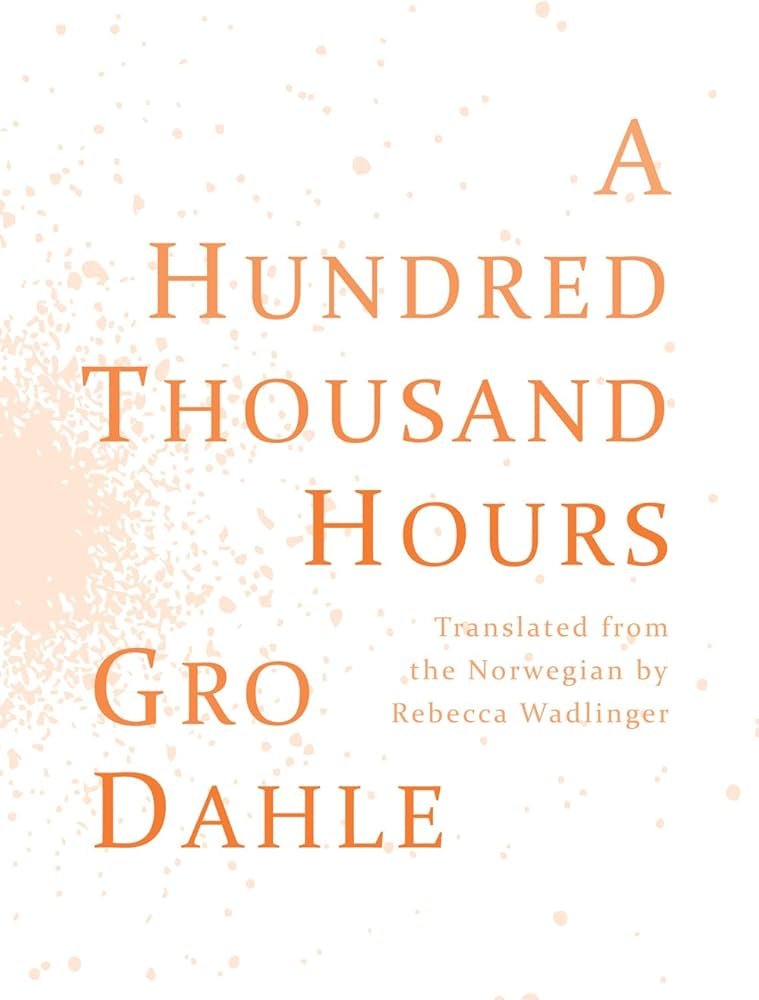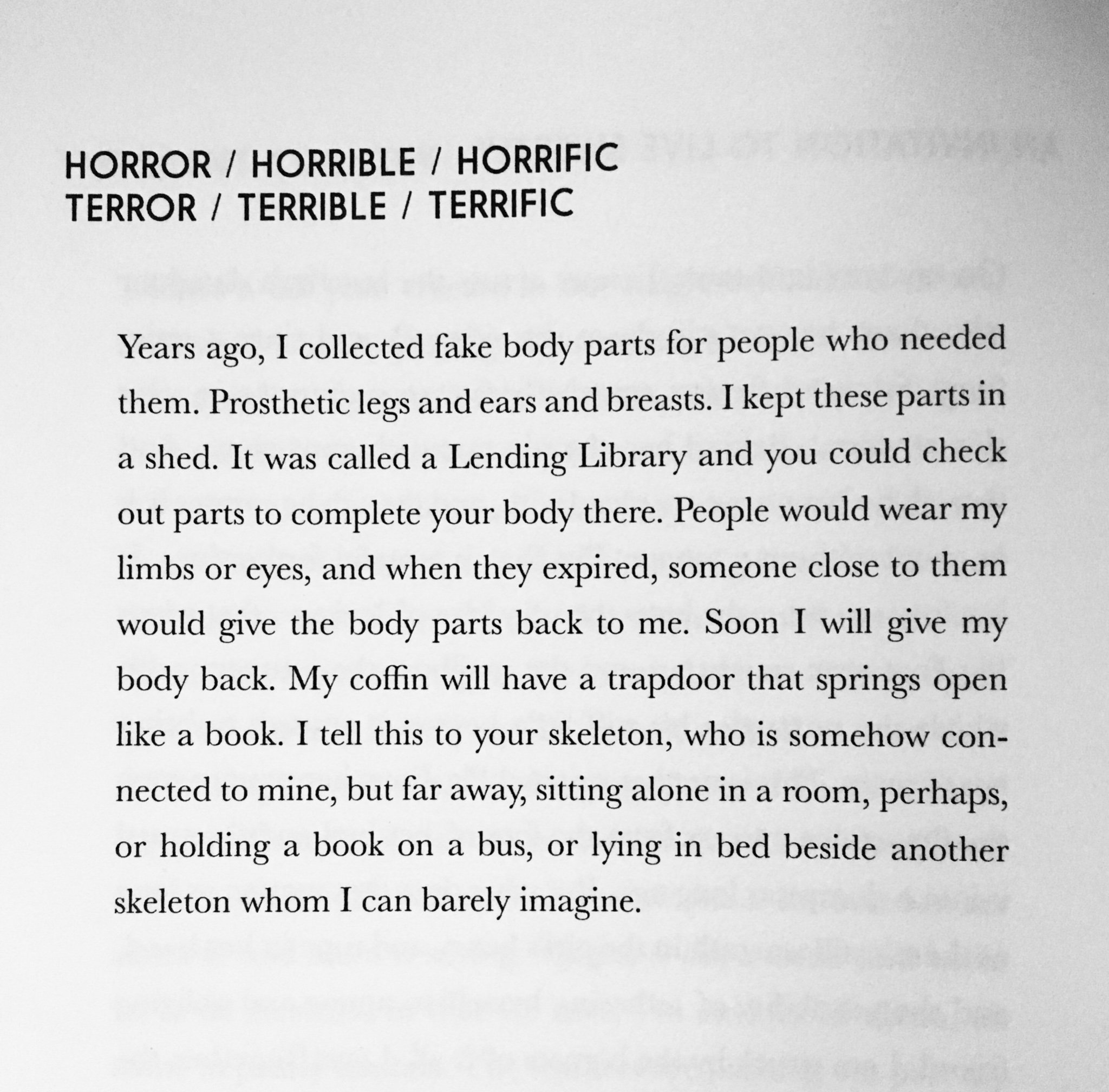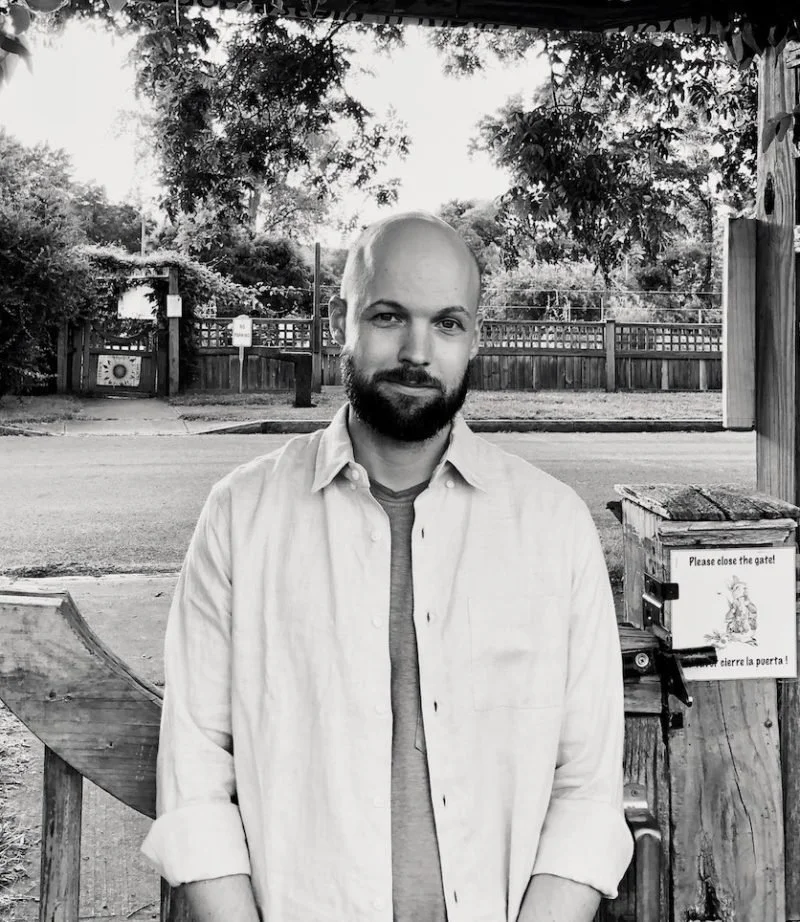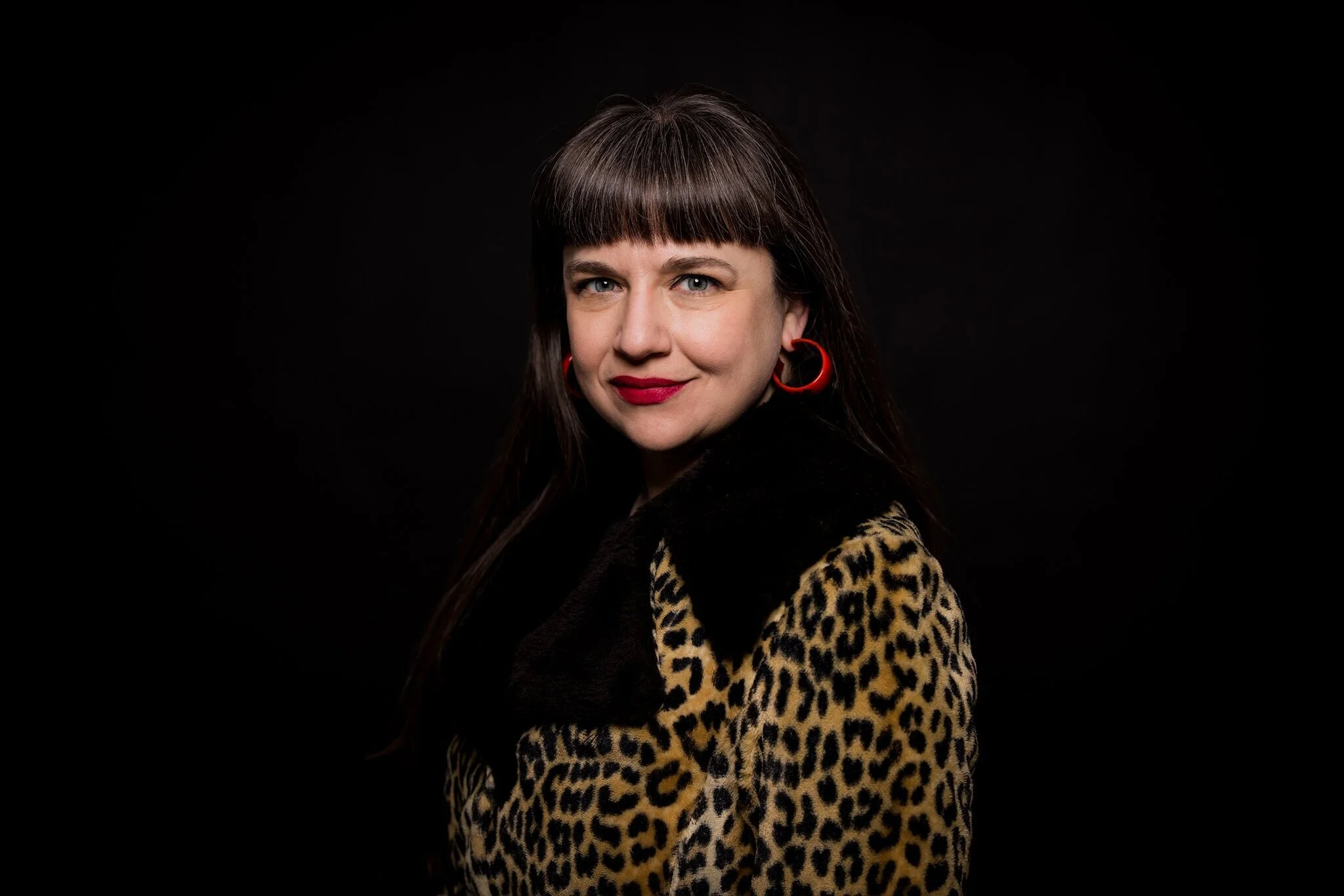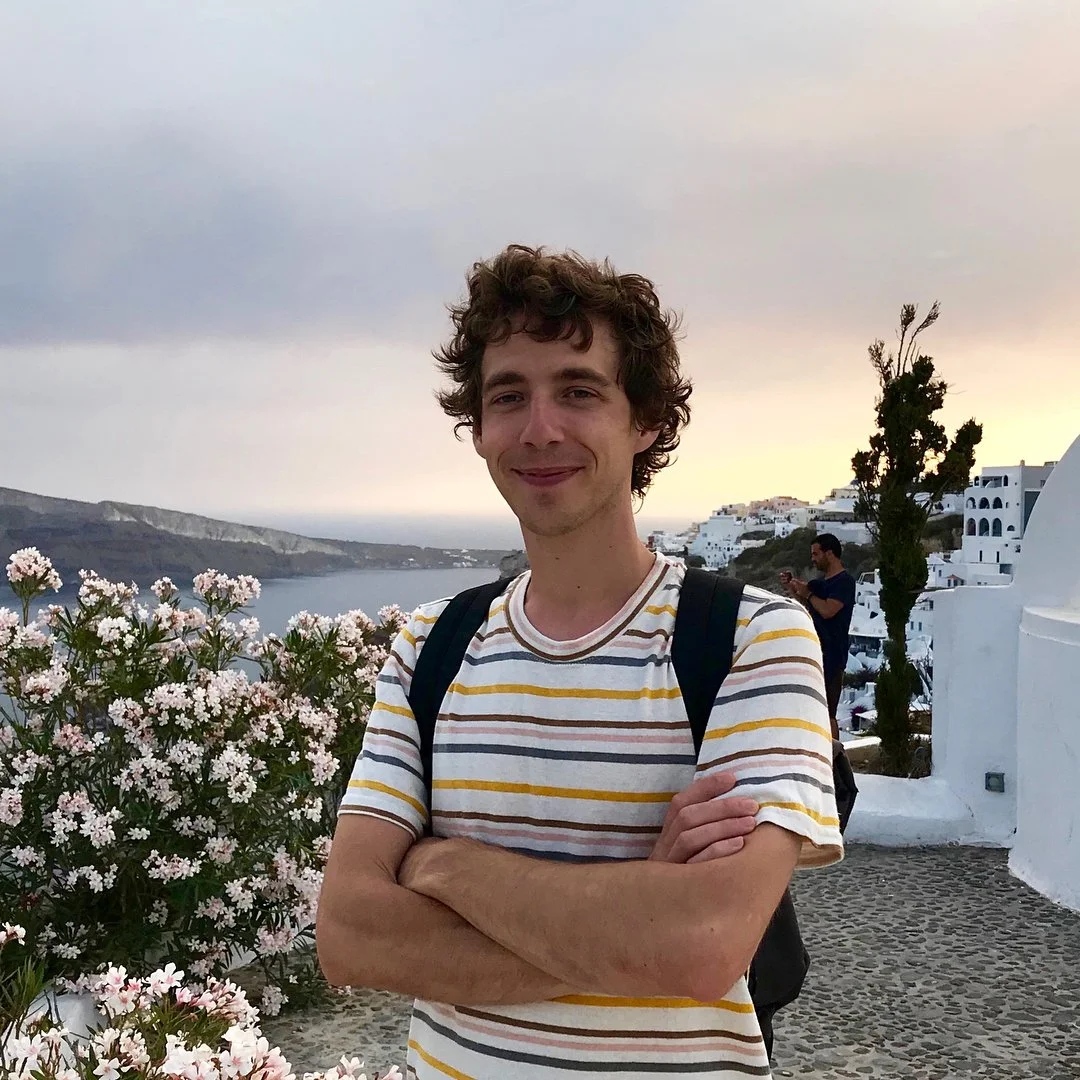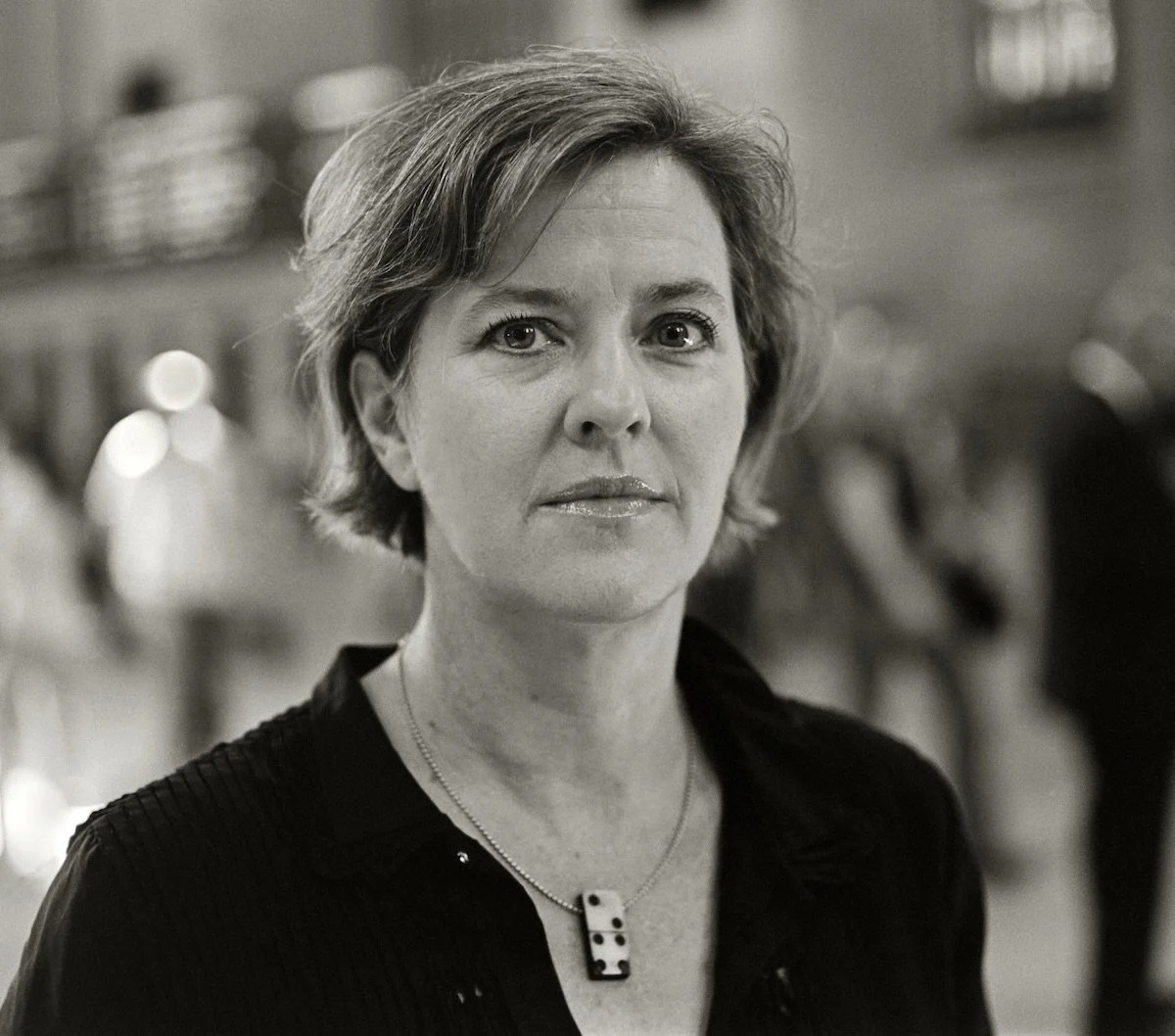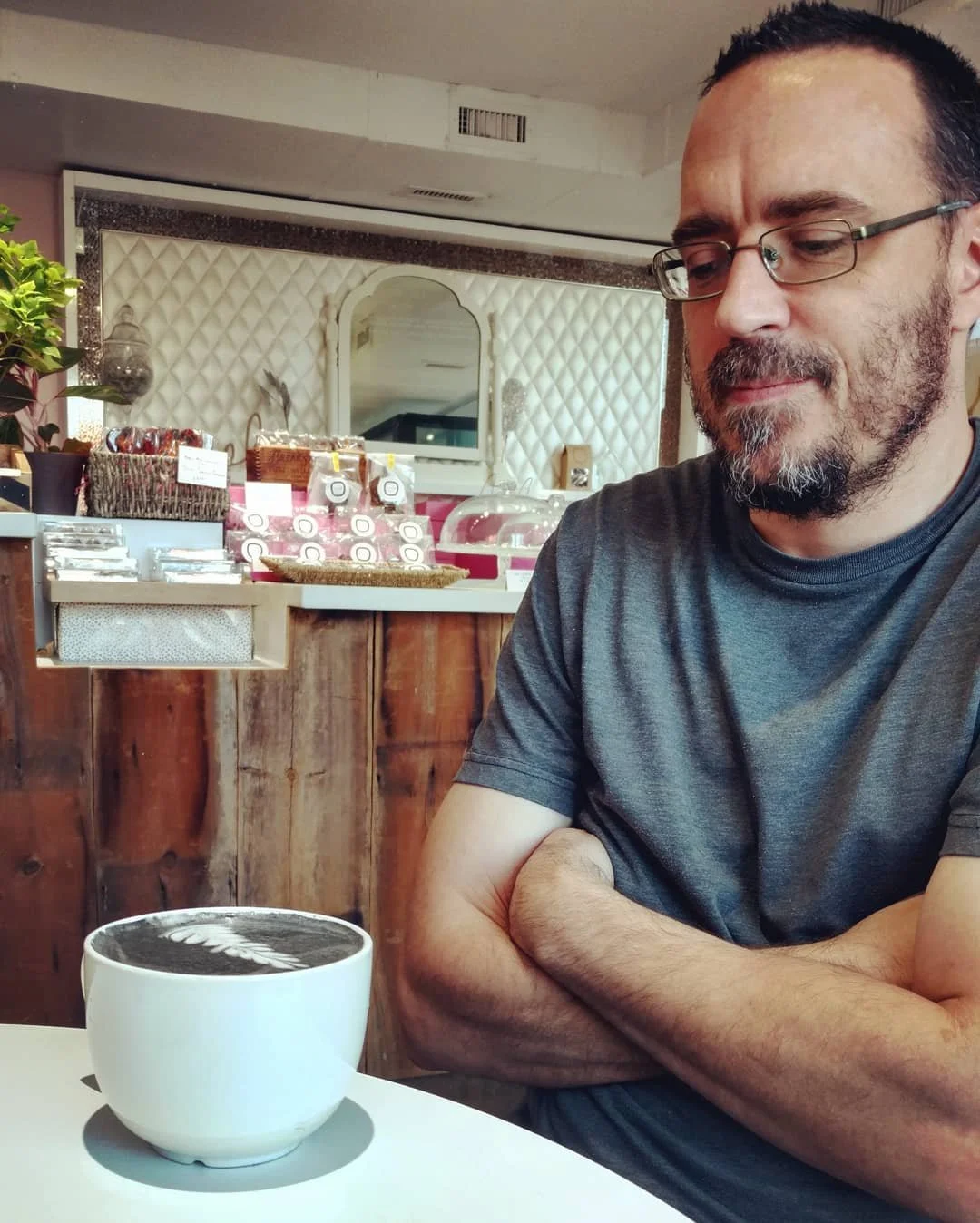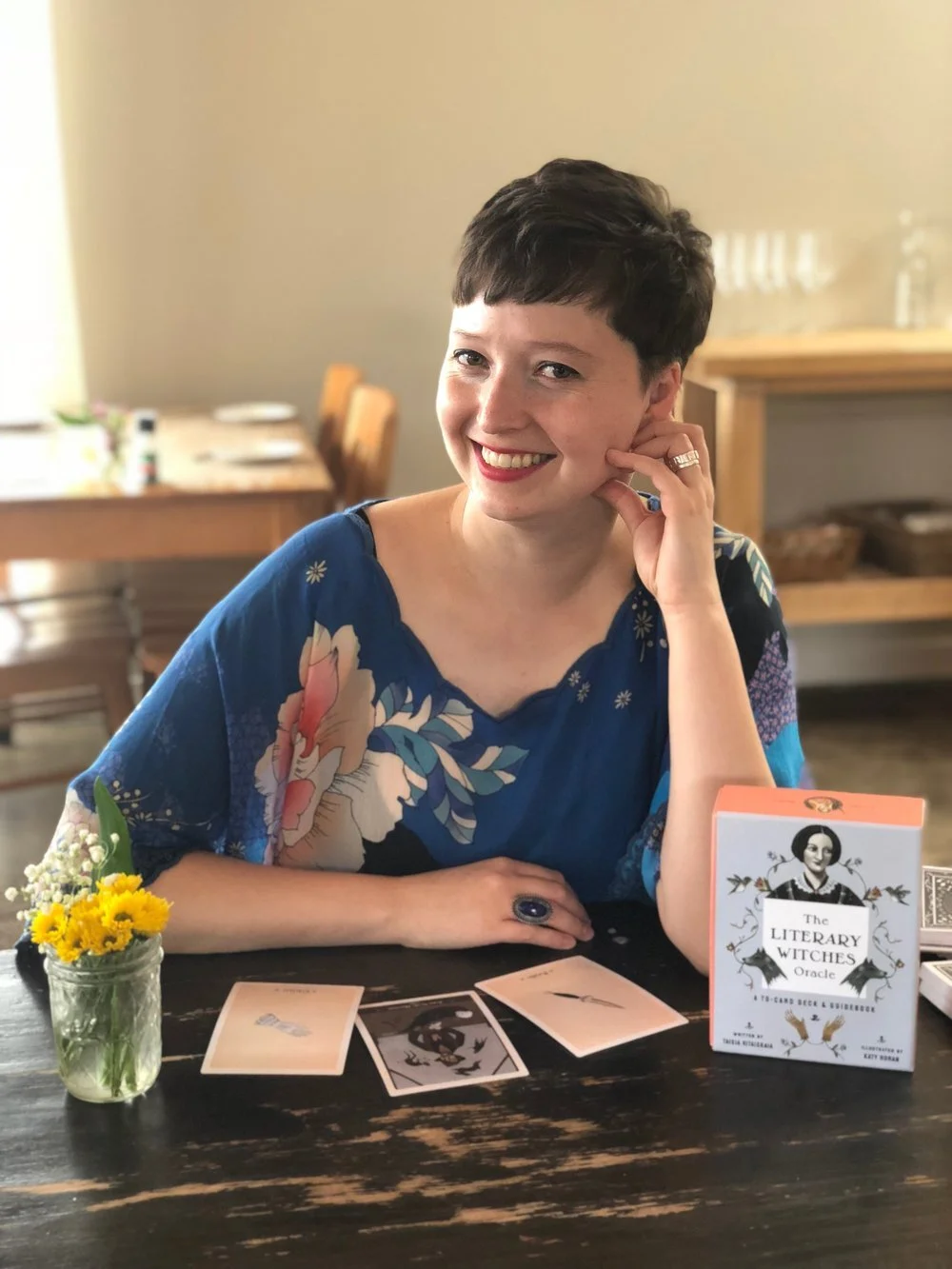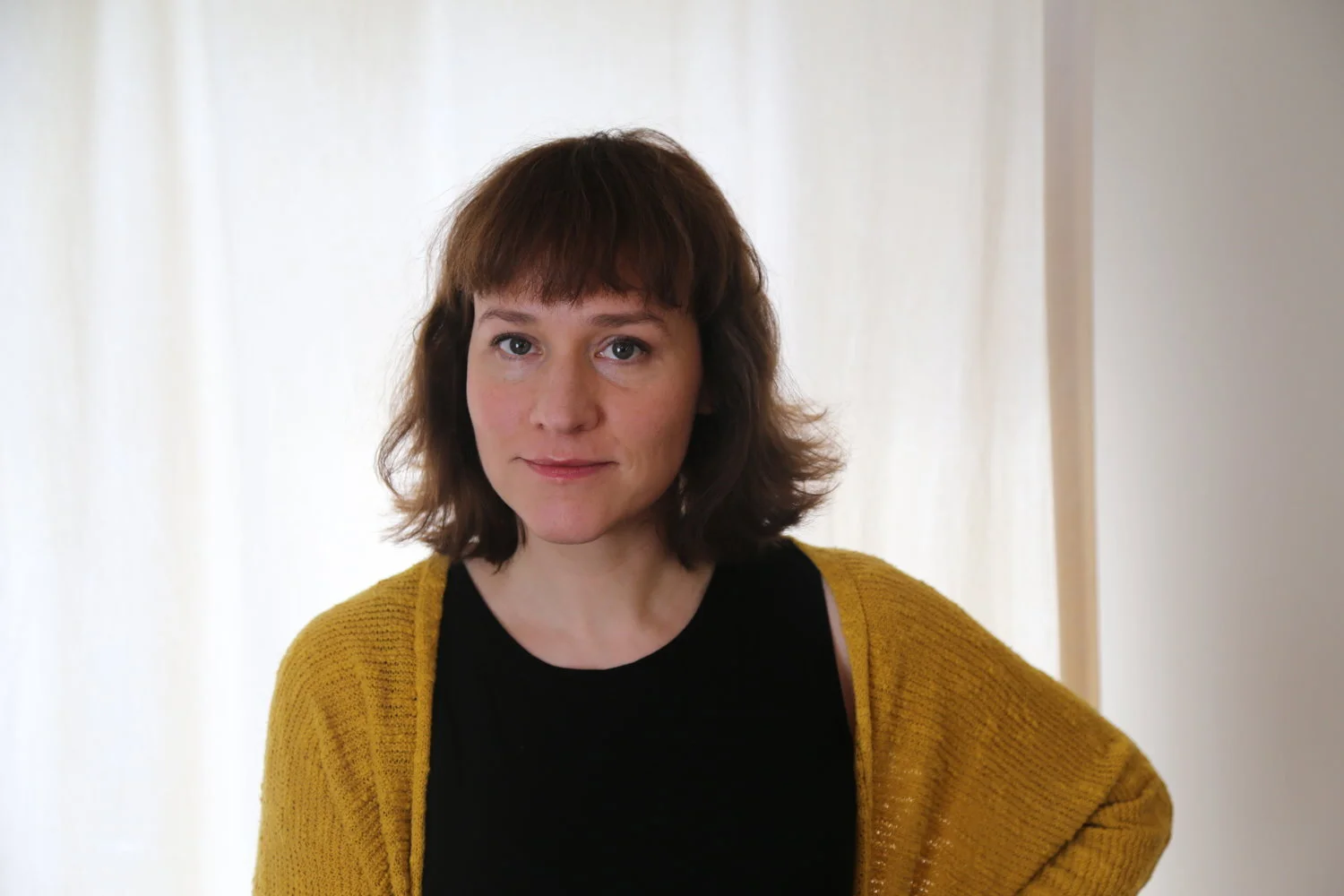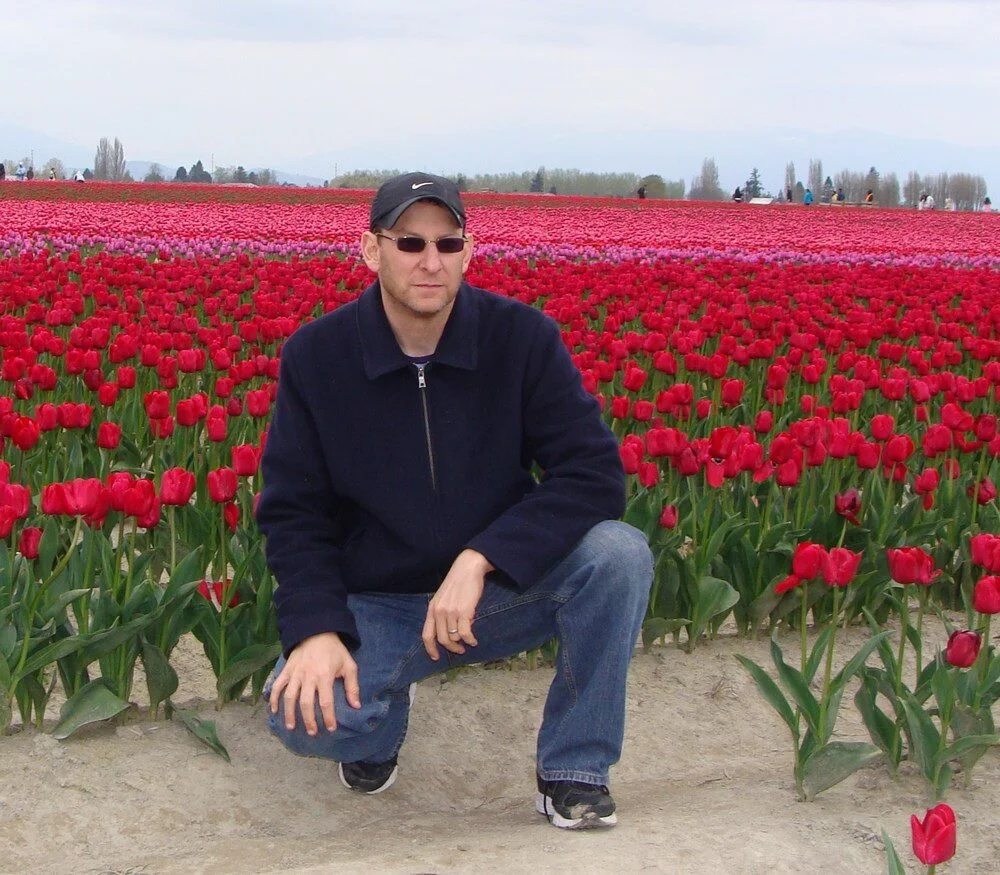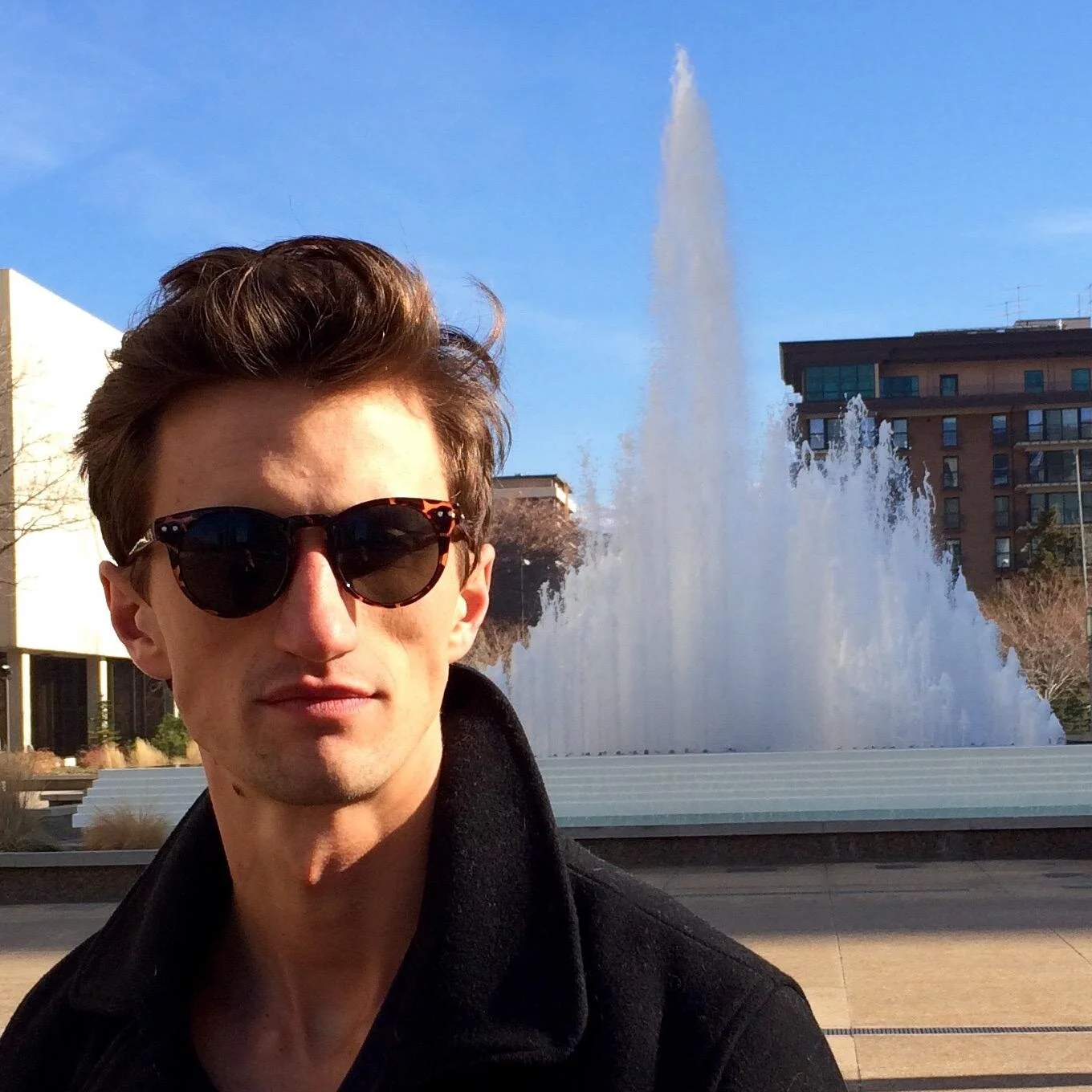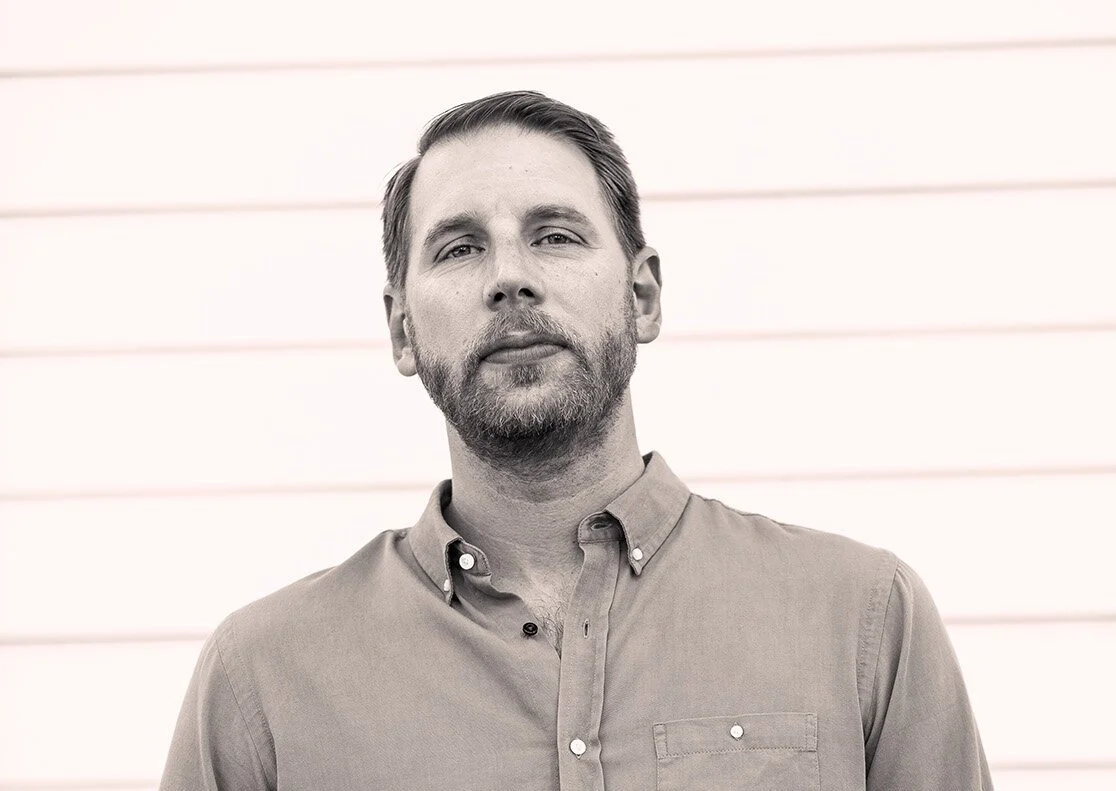Rebecca Wadlinger’s debut poetry collection, Terror, Terrible, Terrific (Octopus Books, 2022) is part grin, part trick of the eye, part sleight of hand, part juggle, and part nod to the poets that came before her. If asked to list collections full of “play”, I’d be quick to mention this one. Complete with an abecedarian, a sequence of nursery rhymes, a fleet of fan clubs, and an accompanying animated lyric video (embedded below), this full-length book is a masterclass in form, humor, and precision, all the while never taking itself too seriously.
While Rebecca Wadlinger’s debut collection of poetry was one of my favorite releases of 2022 (and one of my favorites of the last 5-10 years), prior to that book, she translated and released Norwegian poet and acclaimed children’s writer Gro Dahle’s book-length sequence A Hundred Thousand Hours (Ugly Duckling Presse, 2013). An inspiration for Zachary Schomburg’s 2014 collection The Book of Joshua, this sweeping and surrealist sequence of a mother / daughter relationship redefines itself with each new page. Worth multiple reads, I’d place this wonder in the same family as CAConrad’s The Book of Frank or Jesse Ball and Þórdís Björnsdóttir’s The Disastrous Tale of Vera & Linus.
After taking Wadlinger’s virtual workshop on translation through Portland’s Independent Publishing Resource Center (IPRC), I had the privilege of speaking with her about poetry, translation, juggling passion projects with a day job, traveling through Scandinavia, and much more. With plenty of insight, advice, and an anti writing prompt, scroll down (after buying her two books) to read the full interview below.
Your debut poetry collection, Terror, Terrible, Terrific, is one of my favorite books, period. Can you talk a bit about the process of compiling and arranging this collection? How many drafts and iterations did it see before it was sent to the printer?
Thank you. That means a lot. I finished the book late one night at an old chapel-turned-pub in Portland, where I went every Thursday to work on edits. There was an organist who played to a mostly empty room, and I’d show up every week and tip him to play David Bowie. I remember thinking, “Well, someone out there must like poems about bad naughty fish tanks and a little girl who pulls a dead pig on a leash like a pet.” I guess that was you!
I have no idea about how many drafts I did. For me, poetry books are like making an album. Song in, song out. Poem in—then if I get tired of it, or don’t think it’s still interesting after however many months, poem out.
Did you always know this book would be published with Octopus Books, or did you submit it elsewhere in the years prior?
I’m a very slow submitter. I sent it to Black Ocean and a couple contests. I remember I made it pretty far with Copper Canyon and Michael Weigers praised its “humor and intimate directness,” which stuck with me. But I’m so grateful to have ended up with Octopus because I’ve been a huge Zachary Schomburg fan since The Man Suit, you know, back when Marlene was made of snow.
Throughout this collection, you have an abecedarian, a selection of nursery rhymes, a section of fan clubs, and more. Do you find structure / formulas / sequencing to be generative for your own writing?
I secretly love formal poetry. I studied it in the UK many years ago. Otherwise I think I like short poems, but often have too many ideas to fit in one short poem, so they become extra poems that are friends with the first.
Were there some 'Bad Naughty' pieces and fan club pieces that didn't make the final cut?
Absolutely. I was writing a Bad Naughty poem every day for a while, so there were upwards of 40. For a while I thought it might end up as an entire book, but I slashed it down to one section in Terror, Terrible, Terrific.
Moving over to translation, I'm still soaking up all I learned from your IPRC workshop. When you’re working on translating a book, do you find it difficult to work on your own poetry / writing, or do these two worlds overlap / intersect for you?
I think translating enriches your writing. You spend so much time thinking about different linguistic structures, word choice, subtext, ambiguity, etc. I always translate poets whose work is somehow in conversation with my own for that reason (and because it’s easier, ha!).
Outside of the translated works of Gro Dahle (A Hundred Thousand Hours is a book I return to often, as it so frequently leads to me wanting to write my own domestic surrealisms), are there other writers you are currently translating or hoping to translate in the future?
There are. I’d love to do more of Gro’s work, and I’ve got my eye on some exciting debut collections as well. Earlier this year I went to Norway and found some great poetry and short story collections at Litteraturhuset, which is a cultural center focused on Norwegian literature. But translating takes so much time, so I’m only able to do it sparingly.
Your work often dabbles in the surreal and the absurd and the slapstick and the strange. Can you talk a bit about your aesthetic interests and how you found your 'voice'?
This is going to sound basic, but I think it’s mostly about coming to terms with who you are and what makes you different. It took me a while to embrace my spooky, folksy Appalachian roots and resolve that with how big of a nerd I am. But the end result is unusual…it’s wild register changes from elevated, ceremonial Keats references down to dirty jokes but told like an eerie piece of Mothman folklore. I’m also completely unbothered by trends in poetry and found a home in the world of small presses and weirdo poets doing their own thing.
What are some touchstone books that captivated you and you gravitated toward early on in your writing career?
Super early? Arnold Lobel. Read the story about the owl who makes tear-water tea by thinking of things that are sad (“Chairs with broken legs.” “Songs that cannot be sung because the words have been forgotten.” “Mashed potatoes left on a plate because no one wanted to eat them.”) !!! Or the one about the old lady with the thorny bush growing in her easy chair. Either of those could easily be in my book.
Along with poetry and translation, have you written (or attempted to write) short fiction or novels? Non-fiction? Essays?
Not yet.
Your day job is in the marketing and advertising world, is that correct? As I imagine both require the creative part of your brain, how do you divide time between your writing / translating and your work / career? Do you have a set routine (waking up early, blocking out weekends) or do you simply write when you can?
I was in academia for so long (straight from undergrad to MFA to PhD), I felt like I needed to do something else to be a more interesting person. I worked at an advertising agency for over a decade and now I’m a creative director at YouTube. I get to meet all kinds of smart, inspiring people and make things.
I write when I can, usually when I’m away from home. If I’m in LA finishing visual effects for a commercial, sometimes I’ll stay the weekend instead of flying home. That’s a sneaky two-day writing residency.
When I first emailed you asking about this interview, you mentioned how you were traveling through "all the Nordic countries." Can you talk a bit about that experience? Was it your first time visiting this part of the world? Any particular highlights from this adventure?
Yes! You caught me when a friend and I were traveling through Norway, Sweden, Finland, and Denmark. I’d been to Norway and Sweden several times before—I actually studied Norwegian literature at University of Oslo. But this was the furthest north I’d ever gone (north of the Arctic Circle) and my first time visiting the Lofoten Islands, which are unbelievable. It’s the most beautiful place I’ve ever been. On the first night, we saw the Northern Lights right above our fisherman's cabin. It was otherworldly.
I am a huge fan of Nils-Aslak Valkeapää, a Sámi poet born to a family of nomadic reindeer herders. So I was very excited to see Laplands. I’m still cold.
While your debut poetry collection is still in its infancy, are you currently working on new poems / a new collection?
I am. When I was doing readings for my first book, I realized that I always read the funny poems. So humor has become my inspiration for number two.
Outside of your own work, what are some recent reads that you have enjoyed?
Tolstoy Killed Anna Karenina by Dara Barrois Dixon
The Skull by Jon Klassen
Knife: Meditations After an Attempted Murder by Salman Rushdie
I'll ask the same question, but in regards to recent movies and/or music. What are some recently watched films or recently listened to albums that you'd recommend?
Spotify tells me what to listen to. Today it gave me a list called “Sad Night Drive.” And I just saw The Wild Robot, which was exciting because I love the Peter Brown books.
If you can, provide a photo of your writing workspace or describe with words). What are some essentials while you create?
My writing process is unusual—I do most of it in my head. You definitely don’t want me to provide a photo of that.
It goes back to when I got hit by a car and broke both of my arms in my 20s. I had a bunch of nerve damage and my hands were paralyzed for a while, so I wrote by repeating things over and over to myself. It took a lot of effort to type, so I’d wait until I had a lot of the poem figured out, then I’d type it.
That style of writing stuck. Now I’ll think about poems while I’m walking around, or driving, and I’ll just repeat them until I’m near a computer. Sometimes I’ll forget ideas or lines I liked, and then I just tell myself that it’s okay because they probably weren’t that good, anyway.
For this ongoing author interview series, I'm asking for everyone to present a writing prompt. It can be as abstract or as concrete as you choose.
This was the question that got me stuck for so long, Ben! So many of my teachers (Dean Young, Tony Hoagland, Mary Ruefle) have been anti-prompt. I’m of the school that the world is your prompt, and if there’s something bothering you or that you’re obsessively thinking about, that’s the assignment.
In closing, do you have any advice for early writers / translators?
Do it at your own pace. Wait forever to send a book out if you want. I did. If having publications tied to your career is stressful for you, think about other kinds of jobs.
Also, read as much as possible. I just read the saddest thing, this article about how only about half of Americans read a book in 2023. It haunts me because reading and curiosity are such cornerstones of my life. I can’t go two weeks without going to the library. I really do think good things come from reading, like empathy and cultural awareness and imagination. So please, read.
Any final thoughts / closing wisdom / something I might have missed that you'd like to include? Thank you again for taking the time!
I was a guest lecturer at a university shortly after my book came out, and the number one question students asked me was along the lines of “How come you aren’t afraid to say X?” or “Aren’t you worried about what people think?”
I was like…Well I wasn’t before, but now that you guys keep asking…But really, what was that? The overwhelming anxiety of a generation whose lives are so public and scrutinized?
I’ll leave you with this: please don’t give a shit about what people will think. It’s poetry. I say the next part lovingly: not a ton of people will read it. But you’ll find a few who do, and it might mean something to them. Something great. And that will mean something to you.
So write for yourself. Say the things. Make the jokes. It’s all you can do.



